Hello
Steemians
I'm @mhsnrasel from Bangladesh.
Assalamualaikum alaikum everyone. Welcome to my another blog. In today's blog I'm going to share a place called poetic haven in Bangladesh.
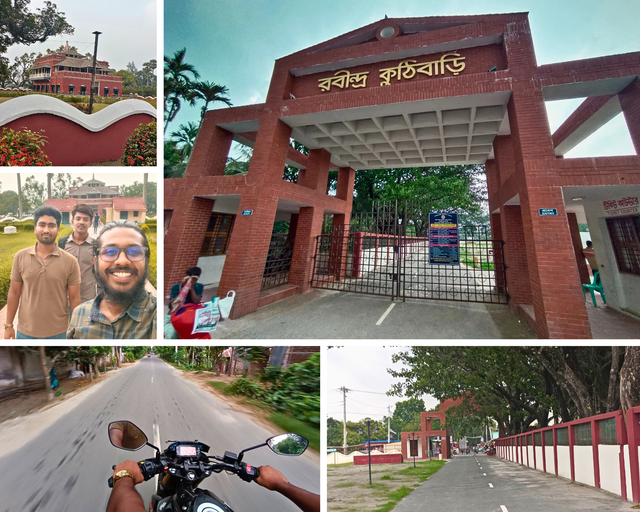
June 3, 2025
It is an ordinary day when you feel you entered the lines of a poem—perhaps even of Rabindranath Tagore's, with a truckload of metaphors and a pinch of fantasy added. It began from early morning hours from my house at Kotsha, Kushtia, when I, waking mid-way with bursting energy, volunteered my service as guide to my cousin brother Mitul. Mitul, who came the whole way from Pabna, Bangladesh, and wasn't seen for a million years as it felt, deserved a good welcome to the pride and jewel of Kushtia: Shilaidaha Rabindra Kuthibari, the birthplace of such iconic poet Rabindranath Tagore.
The Grand Plan: A Poetic Pilgrimage
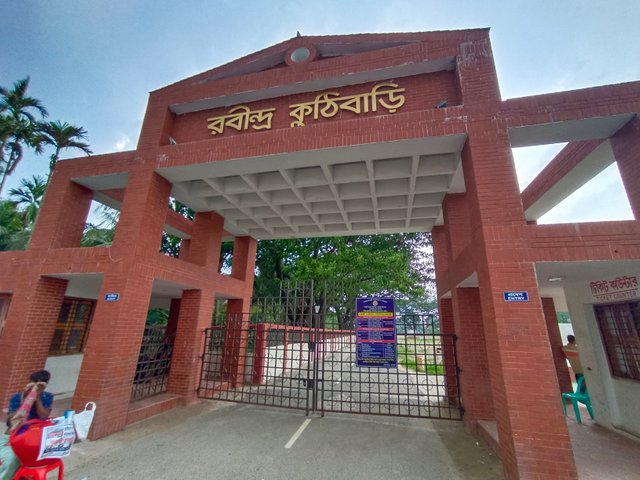
Mitul's. wide. scope. of. "culture" would otherwise encompass its spiciest street food, and thus convincing him to take an historical trip was not exactly a piece of cake. But when he was finally in Kushtia after all these years, I knew I had to bring out the big guns: Shilaidaha Rabindra Kuthibari, the bearded poet of Bengal's den, Rabindranath Tagore's, where he wove his literary magic. This was not just any house—it's where Tagore penned some of his most reflective poems, the ones that will make you stand on the riverbank questioning life (or wanting to, at least). We were starting out at 11:30.
Imagine in your mind two cousins—me, hyperactive, and quite snobbish (and most probably thinking let's just scroll through memes) Mitul. We rode in wind-in-hair fashion on our motorcycle, ample enough to get us into mood for a poetic journey, and set off from Koksha to Shilaidaha, a fair seven kilometers distant. A one-and-a-half hour road journey, courtesy terrible roads and Mitul not wishing to miss an opportunity of hi-jacking every single cow along the way for a selfie. We reached Shilaidaha Rabindra Kuthibari around 1:00 p.m., and I can tell you that the estate is a line in one of Tagore's poems—a line that beckons you to be nostalgic, serene, and slightly magical. ----
Shilaidaha Kuthibari: Where Poetry Was Born
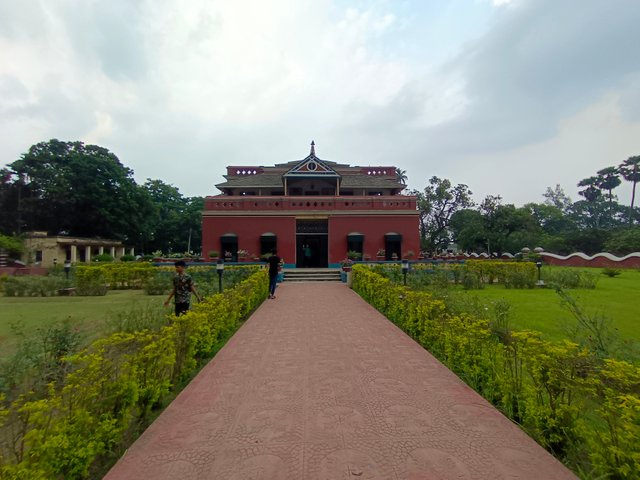
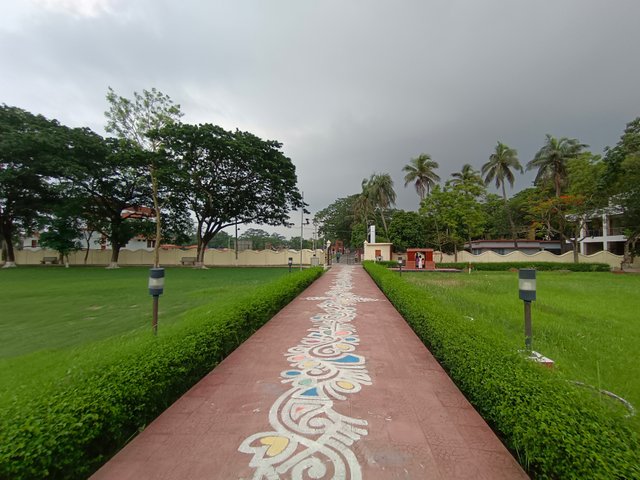
This two-storey 19th-century country bungalow, built by Rabindranath Tagore's paternal grandfather Dwarkanath Tagore, was a home of more than bricks and mortar—a home where poetry coursed as unashamedly as the Padma River that coursed outside. This 1807 house purchased as one of the Tagores' zamindari properties was to serve as Rabindranath's writing retreat in the future when he came there for the first time in November 1889 to 22 to assume family properties. Estate management was not his real vocation—imagine a poet among spreadsheets in his study—but between 1891 and 1901 Tagore weekend-ed in Shilaidaha, traveling there and employing rural imagery in his poetry. The Kuthibari, a Bangladeshi museum, is a colonial gem fused with Bengali charm, verandahs of epic proportion, emptiness, and the view of the Padma which somehow makes you feel obliged to be moved to jot something profound down.
It was here that Tagore wrote all his best best best works universally acclaimed, poems that defined the meaning of man and the dream of Bengal. The museum preserves his memory in manuscripts, photographs, and personal items, including a writing desk which I jokingly told Mitul was where Tagore would write his grocery lists. (Mitul believed me for a whole five minutes, which is itself a testament to my own acting skills.)
Tagore's Poetry: The Pulse of Shilaidaha
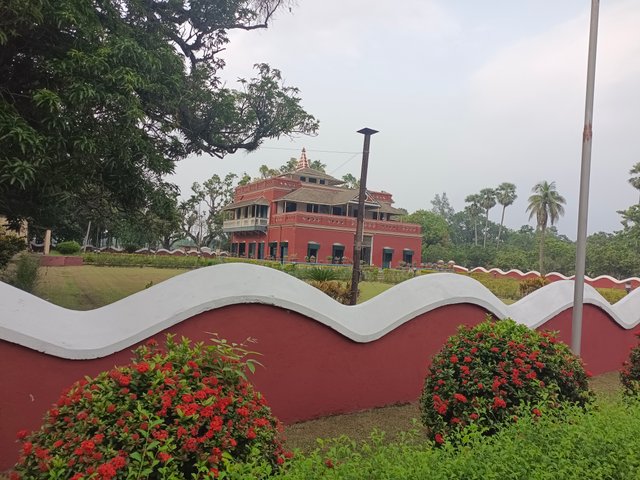
Rabindranath Tagore (1861-1941) was a poet—albeit in the best sense of the term—a literary colossus who revolutionized Bengali literature, music, and culture.
Poet, playwright, novelist, composer, philosopher, painter—the man was a Renaissance man. The youngest of 13 children to a well-known family in Kolkata, Tagore was born to be different, and his poetry is his best contribution to the world. It was in solitude at Shilaidaha, away from the beat of rural life and the calming motion of the Padma, that Tagore wrote some of his greatest poetry, including Sonar Tari (The Golden Boat), Chitra, and Gitanjali, the latter collection of poems for which he was awarded the Nobel Prize for Literature in 1913, the first non-European to be thus recognized. Let us say a single word about Gitanjali, as it is the final poetic work of Tagore.
The 103 Bengali poems translated into English by the poet himself are a philosophy and religion book attempting devotion, nature, and man. Composed partly in Shilaidaha, Gitanjali has the quiet and silence of rural life. Consider, for instance, Poem 11: "Leave this chanting and singing and telling of beads! Whom dost thou worship in this lonely dark corner of a temple with doors all shut?" A summons of the world's own search to the Godhead, and not to ritual—a mood which is clearly seen to have been struck on the banks of the Padma by Tagore himself. As I was in the Kuthibari, I could just possibly played those words in my head, but it was something tangible on Mitul's mind to ask if the museum had Wi-Fi connectivity or not.
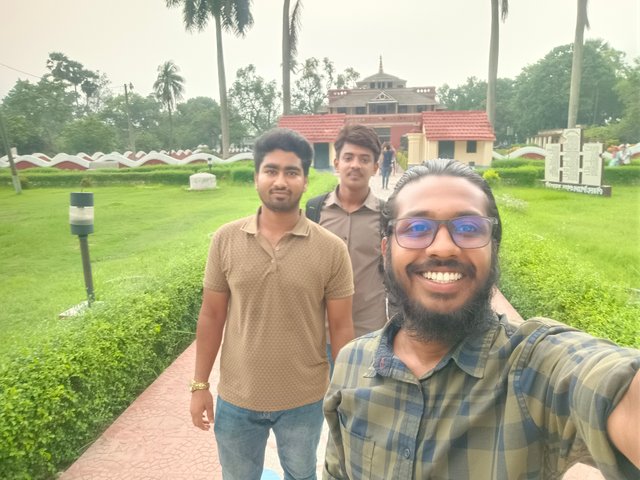
Sonar Tari, another masterpiece composed at Shilaidaha, is an allegorical poem of journey of life, where the "golden boat" symbolizes lost opportunities and the river symbolizes the eternal journey of time. Poem imagery—"The sail is set, the boat is on the stream, / And on it moves, as in a dream"—turns into a love letter to Padma River which we used to see from Kuthibari veranda. I tried reciting some of these lines to Mitul, who nodded his head appropriately and then went on to ask whether Tagore had ever composed any poems about motorbikes. (Spoiler: he didn’t, but I’m sure he’d have made it sound epic.) Tagore’s time in Shilaidaha also produced shorter poems and songs that capture the essence of rural Bengal. His Gitimalya (Garland of Songs) and Naivedya collections, written during this period, blend nature, spirituality, and human emotions in a way that feels timeless.
For instance, in Naivedya, he writes, "The night is dark, the sky is clouded, / Yet my heart is awake with the light of thy love." It's the sort of line you'd want to be lovesick over the distance--before Mitul gets up to get you to ask a street vendor down the block for a plate of jhalmuri (spicy puffed rice).
Most typical of Tagore's Shilaidaha poetry is that it is terrestrial and of the people who lived there. He was not an ivory tower poet but a man who lived among peasants, wrote of their successes and failures, and set them to rhyme. His works are full of the rural simplicity, natural beauty, and unlimited understanding—material that you can still identify with today, if you're a bookworm or want to impress your cuz.
The Unexpected Encounter:
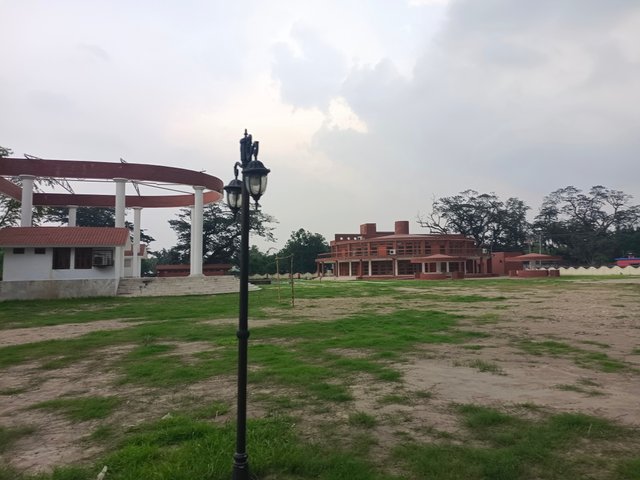
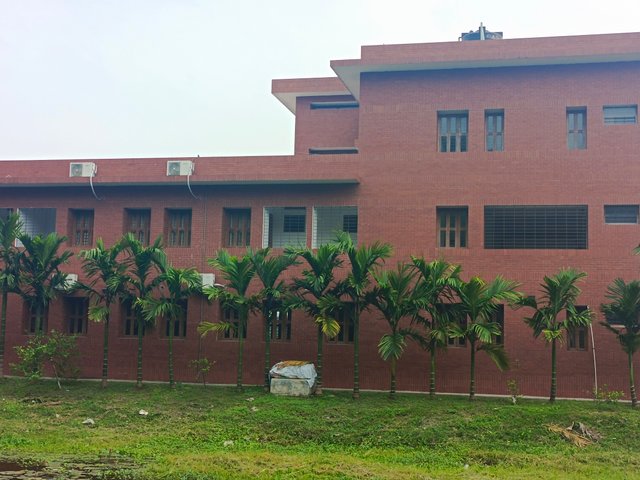
Our friend, the inmate who would have learned Gitanjali backwards and forwards if he had the chance, came along on our little stroll, turning our duo into a trio and our day into a proper bash.
The three of us walked around the Kuthibari, soaking up history and behaving total fools. I was treated to some of the local gossip about Tagore by one of my friends, including a barefaced lie (thank you) about the poet trying to get a cow to sing Rabindra Sangeet. Mitul, the largest of the group, even paused for a moment to think about it, and that provided a fit of laughter that travelled down the veranda. We walked past the rooms where Tagore had written, past the gardens he had strolled through, and along the riverside where he must have penned lines like "The butterfly counts not months but moments, and has time enough." Mitul was quoting Tagore now too—that is, until Mitul's poetic license introduced some misquotations that would have amused Tagore.
Why Shilaidaha Kuthibari is a Poetic Must-Visit Shilaidaha Rabindra Kuthibari is not a museum, but it's a reflection of Tagore's genius and the cultural pulse of Bangladesh.
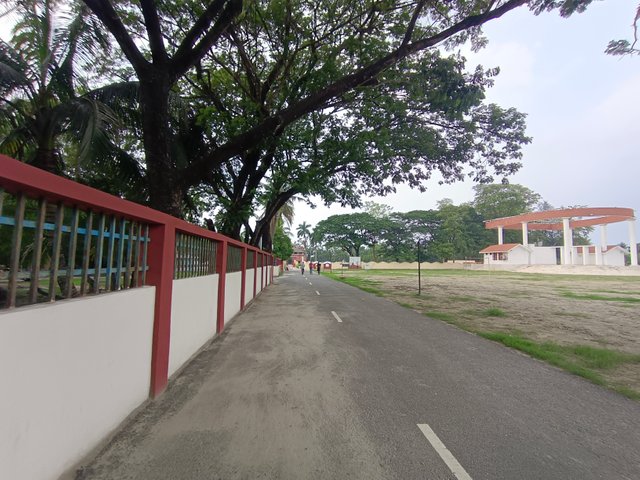
The estate itself is special beyond its structures—it's a demarcation between new and old, India and Bangladesh, life and poetry. Split with the Bangladeshi government, the Kuthibari houses Tagore's life works, and the visitor can steep themselves in his writings where they were created. Whether you're a poetry lover or simply wish to be serene, this destination in some way or another transports you into the world of verse.
Not verse and history did today have in store for me—a brief get-together to try to catch some splinter of Kushtia's essence with Mitul and view it all anew in my friend's eyes.
Mitul, prejudiced against "old houses" this morning at daybreak, was now singing Sonar Tari (or, for that matter, one line of it which he remembered). And yes, we tripped over "Gitanjali" two or three times, but is not half the fun of this exercise, anyway? --- ### A Poetic Conclusion The sun setting into the Padma, the sky on fire in a riot of color taken whole from the pages of one of Tagore's poems, the three of us lay out on the lawns of Kuthibari, munching jhalmuri and absorbing the sun. We laughed over cow selfie pictures of Mitul, debated if Tagore would have been a TikTok influencer, and lapped up contentedly in a day so densely packed with symbolism.
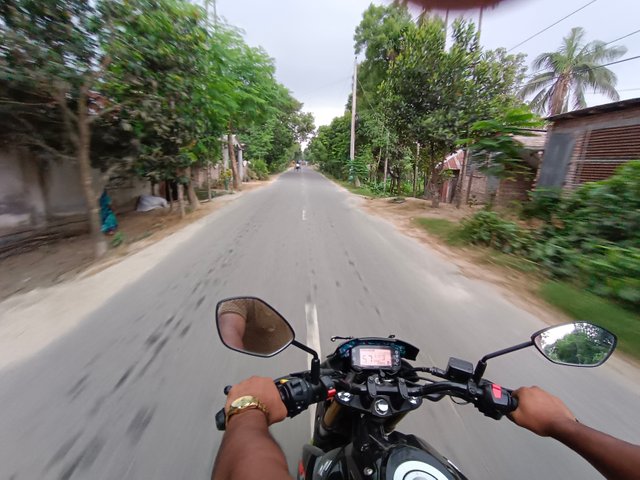
The ride back to Koksha was filled with terrible renditions of Rabindra Sangeet and a newfound appreciation for the poet who made Shilaidaha immortal.Shilaidaha Rabindra Kuthibari is more than a destination—it’s a celebration of Tagore’s poetry, a window into his world, and a reminder that beauty lies in the simplest moments. If you’re ever in Kushtia, visit this poetic haven. Just don’t try to teach the cows to sing.